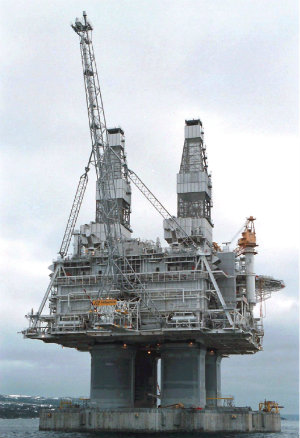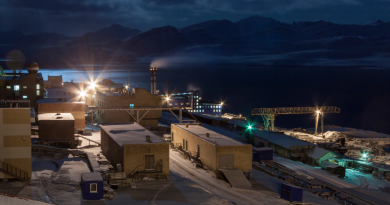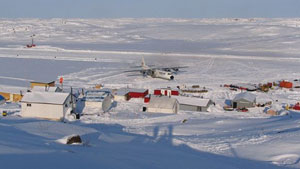Environmental watchdog worried about rise of fracking in Canada
 Scott Vaughan’s final report says government needs better understanding of chemicals used in process
Scott Vaughan’s final report says government needs better understanding of chemicals used in process
Chemicals used in the hydraulic fracturing process — commonly called fracking — were of particular concern to Environment Commissioner Scott Vaughan in his last report as auditor of Canadian environmental regulations that was tabled today in the House of Commons.
The federal government told Vaughan that fracking is an emerging issue, and it is only now looking into it. Provinces, for the most part, are responsible for regulating the oil and gas sector, but Ottawa is in the driver’s seat when it comes to toxic substances.
“According to the government, until it has a better understanding of hydraulic fracturing, it cannot determine whether risk assessments and control measures are warranted,” wrote Vaughan.
Fracking is the process of injecting water and chemicals into underground rock formations. The idea is to break the rock apart, thus freeing trapped shale gas and oil.
The government doesn’t have a good handle on the type of chemicals the industry uses in the process. It has developed a partial list of 800, of which 33 are toxic.
Each shale gas well uses between 55,000 and 200,000 litres of chemical cocktail. In B.C. alone, 7,300 wells have been fractured since 2005, and between 500 and a 1,000 new ones are being permitted each year.
Ottawa will finish a review on fracking in March 2014.
Critical environmental protection fails ‘to keep pace’
The fracking mention in Vaughan’s report is in keeping with its theme that “environmental protection may not be keeping pace with resource development.”
“Given the central role of natural resources in the Canadian economy, it is critical that environmental protection keeps pace with economic development. I am concerned by the gaps we found in the way federal programs related to natural resources are managed,” said Vaughan.
Another example of government regulation lagging the pace of resource development was in the area of offshore oil and gas. Vaughan pointed out two striking examples.
He found two offshore petroleum boards in Atlantic Canada were not adequately prepared to take control of a potential spill. In particular, Vaughan pointed to the Canada-Newfoundland and Labrador Offshore Petroleum Board (C-NLOPB).The Hibernia platform stands tall above the waters of Bull Arm, Trinity Bay, Nfld. The Environment Commissioner is concerned about spill preparedness in the Atlantic coast offshore oil and gas industry.The Hibernia platform stands tall above the waters of Bull Arm, Trinity Bay, Nfld. The Environment Commissioner is concerned about spill preparedness in the Atlantic coast offshore oil and gas industry. (THE CANADIAN PRESS/Jonathan Hayward)
The board “has yet to complete its review of operators’ spill response capabilities and, therefore, does not have adequate assurance that operators are ready to respond effectively to a spill,” wrote Vaughan.
The commissioner also found that fines for damages caused by spills or other industrial accidents are woefully outdated and inadequate. He noted they are much lower than in other countries.
The government has hinted this is about to change.
“I can’t break cabinet confidence, but I can assure you we are well aware, not only as it pertains to diversifying markets and increased pipeline traffic, but in terms of liability for offshore drilling,” Environment Minister Peter Kent said last week.
$4B in tax rebates to industry
There currently is no liability cap when a company is at fault. But if there is no negligence, the top cap is $30 million in the Atlantic and $40 million in the Arctic. The rest of the tab is picked up by taxpayers.
Sources suggested to the CBC that the new caps would be “in the billions.”
The report had two other chapters on federal support for the fossil fuel sector and marine protected areas.
Vaughan calculated Ottawa gave the oil and gas industry nearly $4 billion in tax rebates between 2006 and 2011. Nearly half of that amount will be phased out in the next four years.
Vaughan’s last day as commissioner of the environment and sustainable development is March 31. He will then take over as president and CEO of the International Institute for Sustainable Development.
Related Links:
Polluters to face greater liability for offshore drilling spills says Canada, CBC News
Canada slow to protect marine areas, report argues, CBC News
For more northern stories from CBC News, click here



